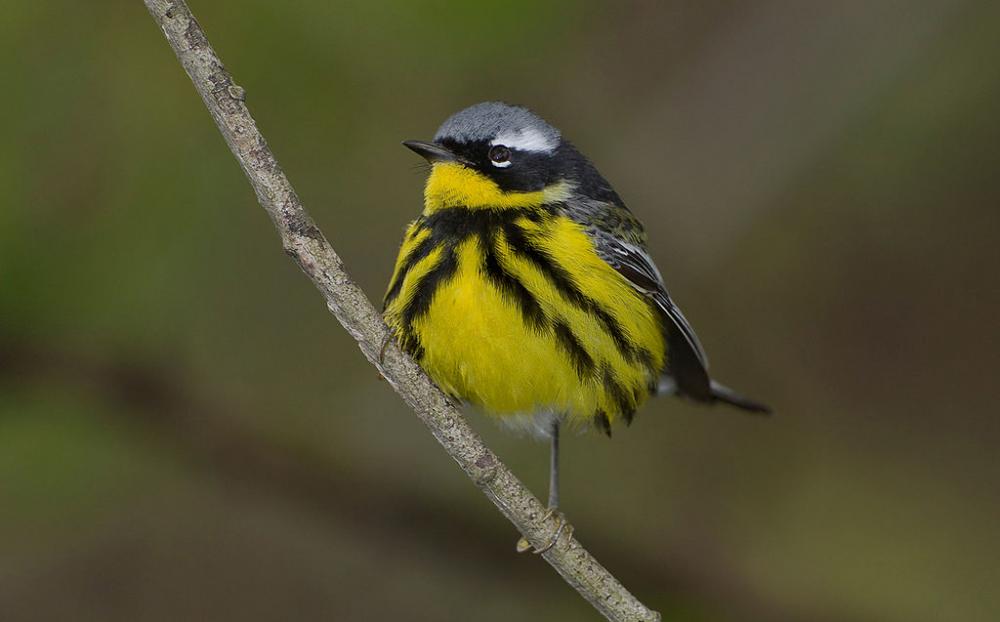Guide to Boreal Birds
Overview
This attractive warbler got its name from the first specimen obtained by the famous ornithologist Alexander Wilson among some magnolia trees in Mississippi in the early 1800s. It actually breeds in conifers in the North, but the name has persisted. The Magnolia is one of the most common warblers in the Northeast. It regularly forages near the ground in low bushes.
Description
5" (13 cm). Male bright yellow below with heavy black streaks, black facial patch, large white wing patch, and yellow rump. Female and immature birds similar, but duller. Broad white patches on sides of tail in all plumages.
Voice
Weeta-weeta-weeteo. Call note a tslip.
Nesting
4 brown-spotted white eggs in a shallow twig-and-grass nest lined with rootlets.
Habitat
Breeds in open stands of young spruce and fir. On migration, almost any place with shrubbery or trees.
Range/Migration
Breeds from British Columbia across central Canada to northeastern United States, and in Appalachian mountains south to Virginia. A rare visitor to West Coast. Winters in tropics.



